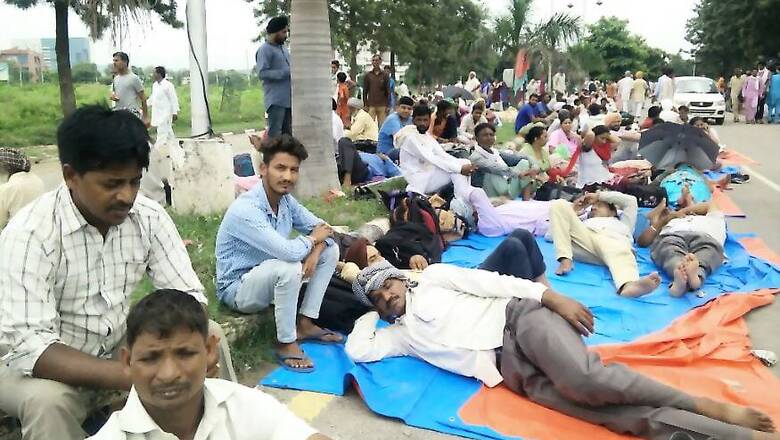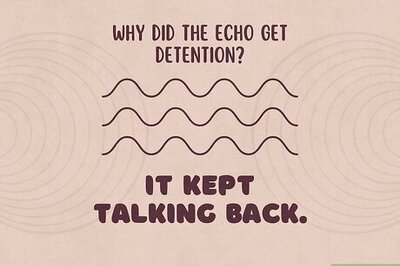
views
There are different perspectives of seeing Baba Ram Rahim’s conviction and the following reaction from the “premis”– rather than looking at the issue from the lenses of law and order, we should focus on complex ground realities.
Right now, as the debates are unfolding on television, the urban, educated middle class is seeing it as a story of a “Rapist Baba” who was emboldened with successive governments supporting it. He can be seen in the photographs with politicians that reflects the mutual manipulation the two agencies practiced on each other.
All of that perception and understanding is certainly true. But there is also the other side of the story – and that is the deras are very popular, particularly with the poor and marginalised.
They have the followers, who, despite knowing all the charges still went there and are still going there. For them, the Dera chief has a charismatic authority. My own understanding of the phenomenon is, Babas and Deras are popular because of the kind of social and economic change on ground and the pervasive exclusions and inequalities that have only been growing with the process of economic growth.
While marginalities and exclusions have grown, the state in India has been shrinking. How could we build a society and a nation with the idea of citizenship without an active participation of the state?
We need proactive policies that empowers the poor and the marginalised, give them a sense of security and belonging. We also need an active civil society that articulates needs of those experiencing marginalisation with the process of economic growth and rapid social change.
The old sense of community that existed in the rural society has all but disappeared after the Green Revolution. If you see, rural India is the dividing land – that had caste divisions, and despite of that, there was some culture of patronage.
But we underwent a complete transformation during 70s and 80s in north-west India. Relations in rural society became very instrumental. It was marked by the practice of hiring people for 2 hours or a day and paying them money for their work and beyond that keeping no relation with them.
Dalits and those at the lower end of the caste scale felt more marginalized after this transformation. This is not simply a process of economic immobility or exclusion.
It also an emotional dimension, a loss of collective idenity and social capital, which breeds insecurity. Growing incidences of farmers' suicide being reported from different part of the country is one manifestation of these changes that have eroded bonds of community life. There is a sense of being lost.
People are looking for some kind of sense of solidarity, security and belonging. Which they find in the classical question of religion. The poor people get help in crisis, repair their houses and get their daughters married.
While looking at this perspective, we should not be mistaken for creating sympathies for a person convicted of rape. Crime is crime. But at the same time there is a larger vacuum where state needs to be a very active provider of social security, which the state is not doing. Also, there is no civil society, in the absence of it you have these kinds of institutions flourishing.
When we talk about greatness of India we need to talk about the inequalities, which are increasing every day. The emotionally marginalized people don’t have resources, social network, land, and culture capital. Their children go to school but do not learn anything.
As is very evident, deras and babas are immensely popular, particularly in north-west India. The common middle class way of explaining this assumes the poor are foolish. Well, if they are so foolish why don’t you go there and fool them - make them into different people? Communists could not do it, nor could other political movements. If we have to understand the phenomenon, we must reject such easy explanations.
The deras seem to be responding to some real issues bothering the poor, their anxieties and concerns. Deras have parallel economies and system of socialization. Deras and Babas will continue to flourish unless there is a system that sets base for citizenship building, providing people abilities to compete in the market, skill, health, and education. How do you build citizenship? Other countries have done it. We need to start building society and the nation through empowering those on the margins. That is the real nationalism.
The Sirsa Baba is in jail and will stay there for some time to come. However, Deras will not disappear. They will continue to flourish, and more or less, in the same format, unless we are willing to understand and are willing to do something about these underlying crises of our society and economy.
As told to Eram Agha
The author, Surinder S. Jodhka, is a Professor of Sociology at the Centre for the Study of Social Systems, Jawaharlal Nehru University. The views expressed here are his own.



















Comments
0 comment